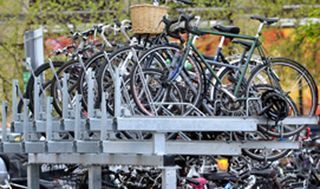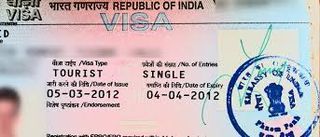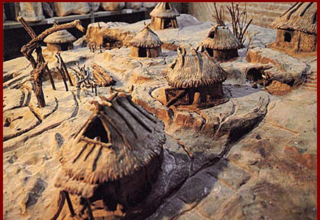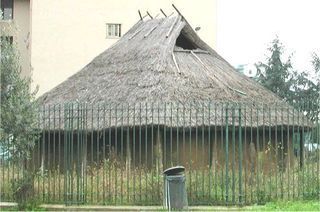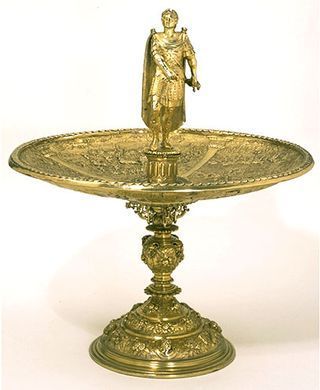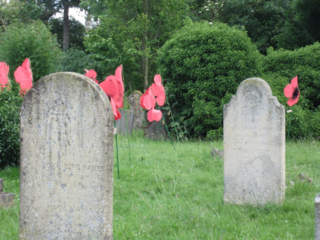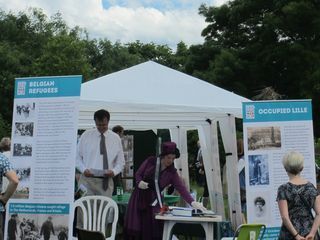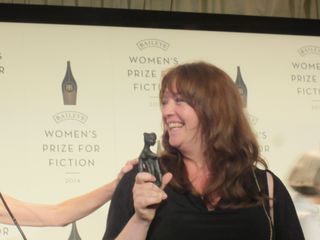Mary Beard's Blog, page 33
July 6, 2014
The peloton speeds through town
I am trying not to be a party pooper about the Tour de France, which is about to whizz through the centre of my town (I mean, Cambridge). I was, I confess, a bit of an old curmudgeon about the 2012 Olympics and was proved wrong overall -- except in the case of the "legacy" (like where's that?).
But I have to admit that, while I can see the immense popular enthusiasm for the sport of cycling,I just dont get it. And the more I hear on the radio about how the "number one" is protected by his "domestiques", with his "soigneurs", so that he can finally make a break and get the "maillot jaune", the more I get switched off (useful glossary here). I may have got it terribly wrong, but it seems to me like some sort of exploitation in which most of the riders set out with no chance of winning, just to keep the cross wind off their king bee and get him the prize.
And it is the KING bee, and it is HIM.. There hasn't been a women's Tour for years.
Cambridge meanwhile is in shutdown. The university and its libraries are basically closed, because with half the streets closed no staff can get to work. Schools are shut too (in a regime that threatens to fine parents for taking kids on holiday during term, apparently it's OK to close schools down for a bike race). And a friend of mine, who is 9 months pregnant and lives in the centre of town, has elaborate plans for getting to the maternity hospital, if she goes into labour in the middle of it all.
I suspect some good may come of it. Like some of the potholes on the route have probably been mended to stop the King Bee coming off his saddle (and we ordinary cyclists will be the beneficiaries).
But, by and large, there is a million miles between what is done for the Tour de France types and us elderly ladies on our "sit up and beg"s. Take what has just happened at Cambridge station (after lengthy "consultation" I admit). A load of double decker cycle racks have been installed, which vastly increase the available bike space there. The only trouble is that you need a bike of the slimness of Wiggo's and the strength of a 20 year old bloke just to get your bike onto the upper level (I counted 45 out of 50 men's bikes there the other day... tells you something, and not just how many more men then women park at the station).
And even if you try to use the lower level (space would be a fine thing), it ruins any wicker bike-basket, and you are almost guaranteed to hit your head on the upper level as you try to lock the damn thing up. (I say this after a couple weeks of perseverance, and bumped head.)
So for me, this shutdown would only be worth it, if it had a legacy in helping those off us going sedately at 15 mph, with a vast pannier of books, not on a speed machine wearing lycra.
Else we'll get back in our cars. And who wants that?
July 2, 2014
A human face in the visa office
We shall be going to India again this summer, for a working holiday. I mean we take our laptops, a suitcase of books that we cant get online or on kindle, and we write for a week in the hotel, interspersed with curry and a few trips out to see the sights. It is blissfully undisturbed (especially if you resist the email), and there are no domestic chores to be done. What could be nicer?
The trouble is that you need a visa, and I have repeated bad luck with the Indian visa system. Part of the trouble, I have to admit, is me. Last time I was doing this, I managed to print the correct size passport photos out on the wrong side of the photographic paper, so when they arrived at the visa office the picture had peeled off -- and the whole thing was sent back to be re-done.
But even when we get it right, the stress of the whole process is almost guaranteed to lead to domestic disharmony .
That is partly because we have never never managed to make the online payment system work -- so we have to use the Postal Order route for paying the fee (£104 each this time, which I bet is less than it costs to get a visa the other way round, so I wont complain). I dont know when any blog readers last bought a Postal Order, or even knew that they still existed. But they are pricey (over £100, it's £12.50), and you have to pay in cash. So that's one stress.
The other is that you have to apply by post, having printed off a form that you fill in online. When you print it out, certain things that you filled in online just disappear (like the name of the hotel you are staying in). So you look at what you have printed out, say to yourself "Damn, I am sure I put the hotel's name in" and start all over again, only to discover that the same thing happens, even when KNOW you have. (Some privacy device?)
Anyway all seemed to go swimmingly this time. I got text messages and emails telling me that my application had been received by the outsourcing visa processers, passed to the High Commission and that it was ready for collection, or to be couriered (as I had requested). This is where the problem started. Today I got an email saying that there was a mismatch in my address, please could I confirm my postal address (plus passport number as proof of ID).
I knew exactly what must have happened. The postcode for my house is very like that for college, and I am always putting my college postcode on my home address. Someone must have discovered this as they arranged the courier. So I instantly replied with the right postcode.
Instantly an automated message came saying that I would have a reply usually within five working days, and was I sure that I had given all the information needed. At this point, I started to do the worst case scenario hypothesis. . . my passport would arrive at some point in the future, no one would be in, the card dropped through the door would be lost, it would sit at the depot, then get sent back.. etc etc. I couldnt exactly share that with the visa processors, who anyway werent going to look at my message for 5 days. So instead I decided to send them the full application number.
The nice person the other end, however, who HAD looked at my emails, obviously caught a whiff of my anxiety. A real human being. And within 15 minutes another email had come telling me not to worry, and that the passport was being sent and would be delivered tomorrow.
So lets hope it does.
(If someone would like to tell us what it is like applying for a UK visa from India, I'd love to know. I fear the worst.)
June 29, 2014
The risks of being risk-averse (and how many essays should a student write?)
What I find amazing about government ministers (of all parties, I am afraid) is that they think that can improve things, by blanket micro management rulings, by name and shame style league tables, and by fining those that step out of line -- without apparently (though I guess we should give them the benefit of the doubt) much thought for the downsides of their regulations. Often the aims are perfectly laudable, but it's the means to the end which is the problem.
Take Chris Grayling's announcement about young offenders last week. I am sure that there is hardly a soul in the land who would not want troubled young offenders to regain a stable pattern of life. But the idea that this is to be (partly) achieved by having lights out at 10.30 pm across the young offenders' institutions (if that is what he really did say) is not just cloud-cuckooland. It dangerously dirigiste. Surely you have to trust the heads of those institutions to use their judgements about bedtime (I mean they are not aiming to encourage disruption, are they?)
The same goes for bad cancer-diagnosing doctors.
Again, as reported, Jeremy Hunt wants to name and shame those GPs who dont pick up enough cancer patients. Well fine; we want to go to our GPs and to have them spot the symptoms of cancers and refer us on. But do we want GPs to be so anxious about their stats that they send every sodding one of us whose symtoms are, or might be, compatible with cancer off to the MRI scan? That's of course what the risk averse GP will do, but it will flood the NHS's resources and it will cause days/months of worry to perfectly healthy people.
There is a similar problem about Michael Gove's rulings about not taking kids out of school within term-time -- and fining them if they do. Well sure, we all think that kids should not bunk off school for repeated family holidays. But sometimes that family holiday might be exactly what they need (and there is a sense that it is sometimes difficult for a head teacher to say so - because it seems to be their call). And just look at the money wasted now on fighting the disputes by people who may or may not be serial offenders. Cui bono? Shouldnt this be sorted elsewhere?
I have to say that I fear that in a few years time, universities will be compelled, by law, to give students at least 6 feedback sessions a term, even if their teachers think that they shoud spend a term doing a big piece of independent work -- or whether they should be producing two pieces of written work a week.
The point is that we rely on good judgement here, not the tick box.
June 24, 2014
Italy's first moggy
If you are interested in my progress (struggles) in writing my next book -- that's the big history of Rome -- I can report that I am about to open the keyboard on chapter 2. This goes back to the very beginning of Rome, after a kick-off in Chapter 1 with Cicero against Catiline (and you will have to wait till it comes out to see how seamless that particular join manages to be, but I am happy enough enough).
I keep putting off writing the first words of this next chapter, but the truth is that what I am reading now is not adding anything anymore -- especially given that I have only 10,000 words or so for the whole "Romulus, Remus, Aeneas, Evander and why it matters" story. All the same, there is a principle of "ripe time" here, and there comes a moment when you know you can (metaphorically, as it must be now) put pen to paper, and honestly there isn't much point trying to hurry it.
For me the fun in all this has actually been catching up with the most recent bits of archaeological thinking on the whole issue of when Roman began.
Taking the long view, there has been an extraordinary shift in scholarly approaches to early Rome, and not in the way you might expect. There is a standard view that historians tend to get more sceptical as time goes by. But in the case of Romulus and Remus and co. the reverse is true. Whereas in the nineteenth century, most self-respecting critics would have said that the legends of early Rome were just that -- legends -- now there are a good number who are prepared to give some credence to stories, as reflecting some aspects of the real historical narrative.
Not many go so far as the Italian archaeologist Andrea Carandini, who appears to be convinced that he has found the city limits of the first settlement of Romulus himself (it's a wall and ditch surviving in a short stretch at the bottom of the Palatine hill -- and could only have been, if anything, a symbolic boundary, as it is far too flimsy for a real defensive boundary, not to mention being in a damn stupid place for one). But there is now a general "no smoke without fire" attitude, reclaiming all kinds of bits of the literary, legendary tradition.
In truth my heart is with the nineteenth-century sceptics (though I find myself thinking that the stories of early Rome, debated and redebated by the Romans as they were, tell us more about later Rome than at first appears). And I find the archaeology frustrating in telling anything more than the most self-evident narrative (you would be amazed how many scholar hours get used up in showing that burial patterns suggest a primitive Italic society in which familial relations were important and gender roles differentiated).
But archaeology does give some wonderfully vivid glimpses of pre and early Roman society. My favourite so far is the Iron Age hut excavated at Fidene (just outside the modern city of Rome) and reconstructed as you can see above. The exact "real" date would depend on how far you accept the recent attempts via dendrochronology and radio-carbon to push all the dates back a bit, maybe by up to a century (meaning that what we thought was c 900BC is really c1000BC). It's a pretty sturdy structure, with a nice enough verandah, and it seems to have come to a sudden end in a big fire. We can hope that the human inhabitants got away, but one definite casualty was the family moggy, whose skeleton was found at one corner of the hut -- the first domestic cat ever discovered in Italy.
June 22, 2014
Cups running over - Classics and silverware
If I were to say that the Aldobrandini Tazze ("cups"/"bowls") were my favourite pieces of Renaissance metalwork it would be a bit of a lie -- but only in the sense that I really can't claim to know any other pieces very well. But since my Mellon lectures a couple of years ago (on images of Roman emperors in post-antique art) they have been firm friends.
They are a set (or originally were a set) of 12 bowls -- originally silver, now silver gilt -- made in the late 16th century, each featuring one of Suetonius' Twelve Caesars. A screw on (named) emperor fits into the centre of the bowl -- which features 4 scenes, drawn from Suetonius, from that emperor's life. They were once kept together (as intended), but were broken up in the nineteenth century and have gone their separate ways, some substantially reworked. When I was preparing my Mellons, I went to see the one in the V and A (that's him in  the picture), supposed to be the figure of Domitian on his bowl with the four scenes. On the right you can see what the scenes look like close up (this is Vespasian healing the lame and the blind).
the picture), supposed to be the figure of Domitian on his bowl with the four scenes. On the right you can see what the scenes look like close up (this is Vespasian healing the lame and the blind).
It didn't take long face to face (in the company of the V and A curators plus Tazze expert, Tim Schroder) to see that , although the figure in the middle was named Domitian, the scenes of the bowl -- long assumed to be him too -- could not possibly be so.
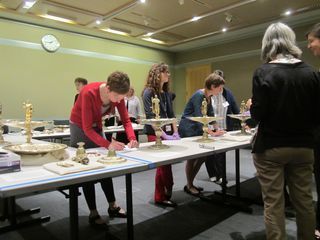
There was one scene that was an instant give-away: that is, a scene of a triumph. Sure, Domitian had a triumph over the Germans; but this depicted the triumphing general getting out of his chariot and kneeling down in front of another Roman. That just had to be Tiberius (as Suetonius relates, he got off his triumphal chariot and went to kneel at Augustus' feet). Then it was clear that the scene that was supposed to be Domitia (Domitian's wife) travelling through Germany had to be Livia leaving Sparta with the young Tiberius and nearly getting burned alive (else what on earth were all the flames doing?).
At this point I was hooked. For a start it was clear that if the Domitian bowl was really Tiberius, then the "Tiberius bowl" couldn't be Tiberius. That one turned out to be Caligula, and the "Caligula bowl" turned out to be -- of course -- Domitian. But it wasn't just the re-matching of the emperors with their bowl. The problem there was pretty clear.. the figures unscrewed and there had always been a danger that they would get screwed up to the wrong base (as I called it, the "cleaning person problem", but probably unfair to cleaning persons).
There was also the question of how these bowls had got split up (when I first came across them, the whereabouts of a few were unknown, and their homes are now in three continents); of where they were made, and for whom; what they were for; and drawing on what sources. They are called the "Aldobrandini Tazze" because they were once owned by that family, but pretty certainly not commissioned by them.
Anyway, the clever people at the Metropolitan Museum have managed to get all the Tazze back together for a brief stay in New York (and there are hopes of an exhibition to follow). And they had invited a whole range of people with some knowledge of, or investment in, them to come along to present a brief paper, from their angle. I talked about the identication of the Suetonian scenes on the bowls (one of the most straightforward aspects, to be honest; but new stuff emerged at the conference). Others discussed where they were made (Italy or Germany seemed to be the main candidates), the sources of the designs, the scientific analysis of the metalwork, and the use of the objects (would you seriously load them with grapes?).
I'm not sure if we got to any firm answers. But it was one of the best conferences I have ever been to. There was a clear target, the material was there to be looked at close up, and everyone was an expert in sone different aspect (and that included the current private owners of some of them!). It actually felt like a real exchange of ideas (not just a series of papers). I do hope a full blown show comes out of it.
June 18, 2014
Quotes and (sort of) mis-quotes
I am determined that I am never going to give up going to talk to student groups, whether they are about women, classics, the world etc... I am a university teacher and the job involves more than just spouting at the young; it involves engaging, discussing, talking at their societies and debates etc etc. But sometimes one's patience is sorely tried (and it's not the students's fault)
A week or so ago, I did a Q and A with a large group at St John's, organised by the college women's society, but a mixed audience. It had actually been a bit of a cock up on my part, because I had double-booked the previous Friday and got an email from the organisers of the John's event, arranging the rendezvous for later, just as I was getting on the train to give another lecture in London. (They forgave me and we refixed for the following Monday.)
Anyway, a few days later there was a report of the occasion in The Cambridge Student. (You know where this is going to end, dont you....!)
The report wasa friendly one and accurate as you could hope for in the circumstances (though the stuff about victims of social change got a bit garbled). It's just that when remarks made in a Q and A are taken out of context they change their meanings -- quite a lot.
I did say that sometimes, brearily, in the morning I woke up to the Today programme and found myself not "hearing" authority in the female politicians' voices. My point was to show that the correlation of (male) "depth" and "authority" was very culturally hard-wired (not natural). So that even I (who was pretty keen on women's power) could, when half awake, be a victim of the cultural stereotypes. I wasn't trying to say that I thought men were more authoritative than women.
And I probably did say that I had had a lot of support (perhaps more) from men than women at work; but the underlying point I was trying to make was that for some years I was the only female lecturer in my faculty. So of course I had had more support from men (even bearing in mind my excellent women's college).
So altogether it was an OK, though not perfect, piece.
Then yesterday afternoon I got an email from a journalist on the Mail, just as I was getting to the airport (for a conference in New York -- on which more later), asking me to confirm if the quotes were accurate. Full marks to her for checking. Very proper, and I'm very grateful, so I can't really complain. But all the same I am now bracing myself for how the story will come across there -- and for a wave of emails of the "how could you say that men speak with more authority than women" variety, which I never said and certainly didn't mean, and looking to the hours of email responses. (You can find the Mail piece as published here, under the heading "Why are females MPs so squeaky?" . . . err hang on..??)
Of course, few people are going to take much notice (though those that do will soon be at their email!) -- and in this case you cant actually point the finger at any particular journalistic crime; in fact everyone behaved remarkably properly. But you can see why you might decide against doing student Q and A's when not particularly accurate, if not frankly misleading, versions of what you said gets bandied about the popular prints.
OK I know it is an occupational hazards of D-list celebrity. What I have to remember is that doing Q and A's with students is important, fun (we had a great time... even though it turned out pricey for me, as I wanted to take the organisers out to dinner after royally messing up their arrangements!) and it's part of the job. Never mind what happens further down the food chain.
June 15, 2014
Time Management
Over the last 35 years or so, I have picked up a few "time management" tips -- on the job. For example, start booking appointments from the end of the day backwards (they tend to sprawl less that way, for reasons I dont quite understand). Try booking appointments at slightly odd times (12.05, rather than 12.00) -- as it makes it rather clearer that your time is squeezed. And if you want to have a few mornings in the library, block those mornings out before the start of term (just one a fortnight is ok) -- if you rely on getting to the library when you find you are "free", you'll never get there.
All that was picked up on the job (and with the help of friends -- especially the 12.05 idea). I have never in my life been to a time management course. That's partly because I haven't had time; and partly because I suspect such things are the weapons of the management (the message being: it's not that you are overworked, it's that you can't manage your time properly... errr sorry I am over-worked...).
Nor have I often completed a Time Allocation Survey, which we are supposed to complete to allocate the funding according to our different activities (teaching, research, other "income generating" activities, support etc: here's one university's attempt at an explanation). To be honest, it never seemed clear which activities fell into which categories. So for a while I just invented it, then gave up. Irressponsible, moi?
So I was cheered up hugely this week when Professor Ganz of this parish sent me Arnaldo Momigliano's brilliant answer to a similar survey in 1965. Here it is. Savour!
In my 24 hour continental timetable I divide my time each day as follows:
2 hours of pure sleep
1 hour of sleep dreaming about administration
2 hours of sleep dreaming about research
1 hour of sleep dreaming about teaching
½ hour of pure eating
1 hour of eating with research (= reading)
1 hour of eating with colleagues and of conversation on teaching and research
½ hour of pure walking
½ hour of walking with research (= thinking)
12 ½ hours of research with preparation for teaching (= reading, writing or also thinking)
1 hour of official teaching without thinking
1 hour of official administration without thinking
___
24
For ever yours
Arnaldo Momigliano
Come on everyone, maybe a bit more of this is what we need (and in my experience 2 hours of pure sleep is roughly right).
June 11, 2014
Speed awareness: take two
I have to confess that I have just taken a second "speed awareness course" (my first experience is immortalised here). Apparently I am one of very few who returns to do this course a second time.
I don't mean to sound so bullish. I do think that driving too fast is wrong, and I know the dangers. I was caught by a speed camera on a Sunday morning at just after 9.00 am, after I had done a radio interview at the Radio Cambridgeshire studios. (I wasn't thinking, the road was open, and I was doing 36 in a 30 mile limit: wrong, enough said).
What was interesting was how much the rhetoric of the course had changed since 5 years ago.
Last time I took the course, to be honest, the line was very much NOT punitive or lurid. It was low key, albeit slighty sexist (we were then divided into groups named after racing car teams.. err, on speed awareness?). Yet I learned a lot - especially about how dangerous the hard shoulder on a motorway was.
This time it was a bit more emotional. There was plenty of useful information (including more about the hard shoulder). But we were also shown, for example, an interview with the parent of a kid killed in a speeding car accident. The basic idea was that we should see speeding as just as morally wicked as we now see drink driving. It was/is a moral issue.
I guess that must be right. If you will kill a kid in the road at 30 miles an hour and not at 20 miles an hour, who the hell would drive at 30? Yet we were blinded by so many statistics that it always seemed better to shut up than object in any way. I was silenced. I now find myself mentally interjecting that is isn't all quite so simple. Statistics of "accidents on urban roads vs motorways" only make any sense if we know how many motoring person hours take place on each type of road in the first place.. and so on!
The truth is that this course seemed to me to be a step back from the one I had done before. First we were told to turn out phones off (in case there was a celebrity on the course, who might not want to be recognised ( "I've had High Court Judges!, our leader said). Second, there was an awful rhetoric about the "tax-payer" (you, the tax payer, pay for all those white lines and extra notices where there has been an accident, as if all there was to it was cash).
Most of all it revealed the really opaque system of speed limit warnings that we have come to live with. A large part of the four hour course was taken up with how you could work these out. To start with, can you see street lights? If so, that would mean a 30 mile limit, unless you can see other signs to say different.. or unless you are on a motorway, in which case it doesn't mean 30.... If you dont see street lights, that means the national limit for whatever road you are on. Hang on?
I can't say that the whole course was useless. In fact, getting people to learn about speed seems much better than giving them 3 points on their licence. And I am pleased (and ashamed) to have done it again. But if I had any suggestions, I would cut the awful tear-jerking stories ( straight accounts are more powerful), and I would do something about the system of speed signage in the UK. If we have to rely on the street lights.. that just cant work. Shouldn't we just make it simpler?
Very few people actually want to kill in their cars, The speed awareness course helps many. But it might get its rhetoric better? And it might be a little less patronising?
June 8, 2014
World War One at Mill Road Cemetery
I confess that I do have a favourite cemetery in Cambridge (The Ascension Burial Ground, up Huntingdon Road, just opposite my house). But I now have a close running second -- The Mill Road Cemetery, on the other side of town. Until today, I hadn't been there for gettimg on for 40 years (and I suspect that the last time I visited with a bloke who had a room nearby, it was to do something on the border between the naughtly and the illegal...).
Amyway, I went today to see a wonderful performance of monologues by the students from the Parkside Federation that related to the graves commemorating WW1 casualties. It was a really tremendous way to skive off marking (though actually I was caught out by meeting one of my PhD students whose thesis I should also have been reading -- she was there to watch her daughter perform). The Parkside kids, together with some local residents, had investigated (and in some cases cleared) the graves of the men who had fallen in WW1and they were there to tell some of the stories (with the help of some inspired scripting from their teacher, Kay Blayney).
They had done a great job unearthing the life stories. We heard of William Douglas Saint, the son of a Cambridge buildier, who went to work on Canada, enlisted in the Canadian Expeditionary Force, served in France, returned to England and died of meningitis on Salisbury Plain. Then there was the story of the son of a local butcher, Frank Radford, killed in France in 1918 (his brother had been killed in Basrah, Iraq a couple of years earlier -- nothing changes). And there was Henry Hunt too, the Recruiting Sergeant, who survived the war to die in 1942 (one of his descendants was there to help tell his tale).
The students told (and sang) the stories by the graves or memorials, and there was a tent to find out more info (with help from the excellent Emma (above) in Suffragette colours, as you can see). There was music and food -- and well over a hundred people in the hour that I was there. Best of all though, there was a great local Cambridge feel: some old Cambridge names were being remembered (the young Ryder of Ryder and Amies, was one of those who died, as well as the people who lived in the houses that we still live in (casualties from Ainsworth Street to Perowne Street), and who ran the shops that we still shop at).
One of the most moving entries in the commemorative booklet was that of Maurice George Warland who died in Iraq in 1917. He had had to face his friend John Robins being "shot at dawn" in Gallipoli for "wilful disobeience"; he wasn't pardoned till 2007.
I have got to be very onside with the WW1 commemorations (and have a very tiny foot in the official planning). So I'm biased. But there is a whole history here -- of the poor and the rich, officers and men, and young people from Cambridge, from butchers shops, upmarket tailors, gown and town, dying all over the world. Happily our own sons (and daughters) no longer die in Belgium. But they have been dying in all too recently in Iraq, just like Maurice George Warland and the Radford brother.
June 5, 2014
Baileys prize night
It was the Baileys Womens Prize for Fiction presentation at the Royal Festival Hall yesterday evening. We judges had met the previous evening for dinner to decide the winner just the evening before. If you do it so close to the ceremony, it makes the secret easier to keep -- and indeed I was completely scrupulous and didnt even tell the husband (that would have been harder if there had been a week or so to go!).
Anyway it was a great party (even though I discovered that, at 6.00 pm, my new found enthusiasm for Baileys on the rocks didnt quite match my enthusiasm for a nice big glass of champagne) -- and all the shortlisted authors were there (apart from Donna Tartt), a good number of the long-listed, plus a huge crowd of supporters, previous judges,great women etc etc.
So . . . as you can see, the prize (of £30,000) went to Eimear McBride, for A Girl is a Half-Formed Thing.
She gave a great speech, which actually brought a tear to my cynical old eyes. It had taken her a decade to find anyone who would publish it -- before Galley Beggar press (good for them) took it on (I met at the bash Sam Jordison who is one of the press's founders, and he reminded me that I had taught himm in Cambridge years ago ... so I found myself enjoying a little reflected glory, and musing on the great things our classicists went on to do in the world).
I had, of course, been curious to meet McBride -- especially as the book was a bit searing, and (spoiler alert) didn't exactly have a happy ending (though that wont surprise anyone who has got as far as page 2). I suppose that, despite knowing full well that there is a big difference between authors and their texts, I was still expecting someone who exuded a bit of agony. But, as you can see from the picture, there wasn't much agony in evidence -- at least not last night!
A Girl certainly isnt the "easiest" book on the shortlist, and not the "easiest" winner in the Women's Fiction Prize history. It's a lot more James Joyce than Jeffrey Archer. And there is a lot of experimental play with punctuation, sentence structure and so on. There was a bit of chat last night about the "accessibility" criterion for the prize. This took me back to a conversation I had had with my friend Ruth Scurr a few months ago in the context of other literary prizes. I remember her saying that accessible didn't mean easy. It was more to do with the effort-reward ratio. If you took the trouble to get into it , was that effort amply rewarded?
In the case of McBride's book, the answer is emphatically yes.
Mary Beard's Blog
- Mary Beard's profile
- 4110 followers



